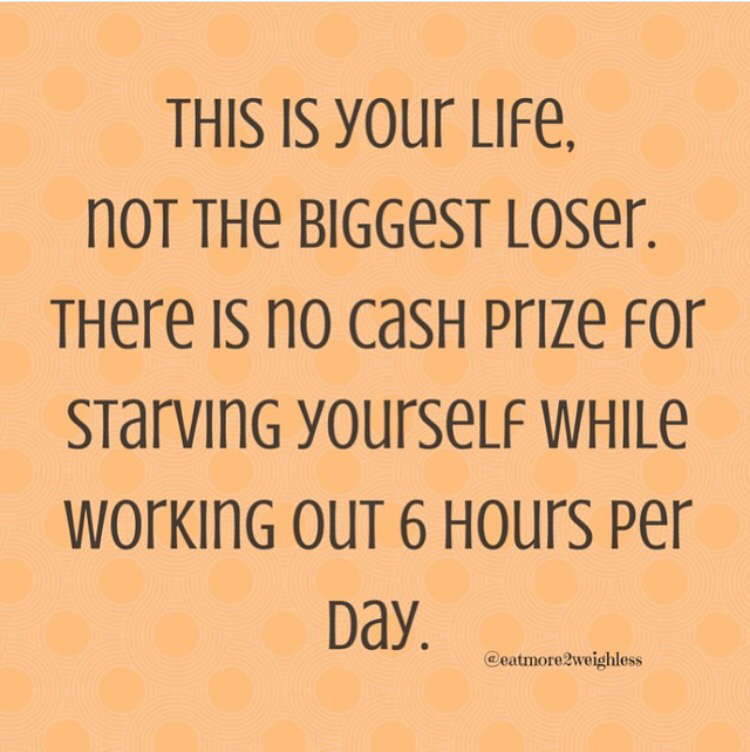“Remove this.” “Add that.” “Do only this.” “Never do that.”
In our constant pursuit of the perfect body, misplaced focus has become the name of the game. The fitness
industry (that I both love and loathe) is infamous for placing more emphasis than needed on the things that matter the least, and not enough on those that matter most (more on this in my next post: Understanding Best Practices). One area that stands out lately — when talking with trainers and clients — is brushing off the stress factor, and not truly realizing how big of a deal it is.
(This broadcast goes into more detail on this)
The cost of ignoring the stress factor.
We often hear (and say!) phrases like “I know that I’ve been a little stressed lately…but I should still be seeing some results…”
While nutrition and exercise both play a huge part in fat loss, we tend to overlook stress. The reality check is this: when it comes down to dealing with excess stress, you can’t out-eat or out-exercise it. And those who attempt to, discover a rude awakening. What begins as a small issue can quickly lead to a downward spiral. Seemingly insignificant stress can lead to water retention. Concern over the temporary water retention (“weight gain”) often causes a panic of more restrictive dieting/intense exercise. Worry + diet + exercise = stress overkill. This increase in stress leads to even greater sodium retention/cortisol release (more weight gain) – insert slippery slope here. It’s very easy to look up from what could have been a weekend relaxation-fix (temporary) and find yourself facing an additional 6-12 months on your fat loss journey (true fat gain).
 Do we even recognize stress anymore?
Do we even recognize stress anymore?
As we age — and have more on our plate; kids, aging parents, and work — we don’t realize how much stress has piled up. As women, especially, we tend to feel like we can handle everything that’s thrown at us. We even take a certain level of pride in it, bragging (aka complaining with no intention of changing/getting help) about how much we have to do every chance we get. One of the sneakiest things about stress is that while we can typically recognize the big stressful events (death, sickness, work projects), there are some stress factors in our life that we don’t even recognize or categorize as such. For example, working out creates stress on the body. While it may feel therapeutic, exercise can actually exacerbate stress levels.
Not being able to recognize stress in it’s various forms often leads to fighting fire with fire, and introduces a host of other issues.
Address the root, not the fruit.
Stress is a master of disguise, and the enemy of the modern woman’s health. We first give it all the room it needs to work (take root) by disregarding it’s presence. Once in, it can do all the damage it needs, by keeping us busy attacking “symptoms” (the fruit it bears).
Stress-related symptoms can translate to thyroid issues, weight gain, and overall fatigue. Additionally, your digestive system can react as well (think IBS, food allergies, etc.). Instead of directly addressing the stressors in life, people often try to eliminate foods to try to resolve digestive issues. Same goes with exercise. Intense, or long duration exercise puts the body under stress. This is the reason why we will typically lose weight/fat under proper circumstances (the body’s first, natural reaction to stress in a healthy body). However, when panicked about weight loss (read: stressing over how long its taking), we tend to turn the very modes of exercise that causes the most stress. If you’re exercising intensely on top of living a stressful life, your body is likely to go into shut-down mode (read: fat gain/retention).
If you’re experiencing any of the following, you may be exhibiting this severe-stress response:
Blood Sugar Swings
Hypothyroid Symptoms
Weight Gain (especially prominent in the belly)
Fatigue
Decreased Immunity
IBD
IBS
Food Allergies
 How to eat/exercise/supplement/live when over-stressed
How to eat/exercise/supplement/live when over-stressed
During very stressful times, sometimes the best thing to do is to change up the type of exercises you’re doing or to do your normal routine at a lesser frequency. There are types of exercise that will heal you/help you maintain, and those that will cause harm. Stress-friendly exercises include walks (not a power walk, run or jog), gentle yoga (not power yoga) or a leisure bike ride (key word: leisure). Endurance-style weight training and circuit training are not the types of weight lifting you should partake in while stressed. Instead, incorporate heavier-style lifting, which requires longer periods of rest in between (think 5/6-10 reps).
Even simple, everyday things that we don’t think twice about increase our stress levels. For example, if you watch an action-packed movie and are already stressed, your stress levels will actually increase! In place of an action movie, watch something more light-hearted, such as a comedy, or take a bubble bath. Additionally, make sure to supplement with omegas, magnesium, Vitamin A & D and probiotics. Make an effort to sleep more (training less if that’s what it takes to find that extra hour!) to best respond to stress.
As mentioned above, intense exercise/dieting during stressful times will actually lead to increased stress, which leads to more weight gain. Don’t compound the problem. If you’re experiencing weight gain, don’t try to diet. Cut back on steady state cardio, and do more leisure/slower-paced types of cardio (walking, yoga). An occasional HIIT session or two can sub for your cardio until you are in a less stressful state. (One exception to this is if you are facing extreme adrenal fatigue symptoms, in this case, even HIIT may be too much in the early healing stage).

Try to simply savor the moment from time to time. Don’t wait for the weekend. Have a midday ritual: sneak a nap. Or…take a tea, coffee (or breathing!) break – no screens allowed!
Now keep in mind, not exercising at all isn’t what we’re recommending here. The point is to train yourself throughout the day to have downtime (nap, walk, daydream, meditate, no-screen-time, etc.) so that your workouts are helping you rather than hurting you. Regular exercise has been proven to help with stress management. In a healthy body, exercise is intended to be “good stressor.” The key is understanding what helps and what harms in an overly-stressed, or metabolically damaged scenario.
Weight fluctuations during stressful times are bound to happen, but the key is not letting these fluctuations create more stress. If you’re someone who likes to weigh, you can continue to do so, but take the number on the scale with a grain of salt. The key to mastering life, and fitness, is balance. If you can find a way to manage stress levels, and balance your responsibilities with staying active, you’ll have a much better chance of keeping your weight under control and your happiness high.
On that note, I need to take a break from this screen, and go spend some quiet time with my foam roller.
Have a great week, Fam!
~Kiki :)
PS. Got questions? I’m on Periscope M-F, to answer your FAQs. So make sure you’re following @EM2WL to get notifications the second I start the next broadcast!
Photo cred: Flickr
Are you curious about how the process works, or wondering what's in our Starter Kit E-Book? START HERE. We'll send you a free breakdown of the basics, exclusive videos explaining why everything that you've learned about diets have only led you astray, and an action plan to take your life back immediately.
No worries, we hate spam too!
Discover more from Eat More 2 Weigh Less
Subscribe to get the latest posts sent to your email.





Recent Comments